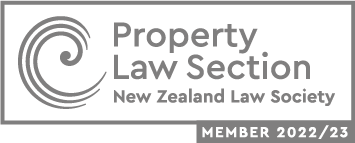What are my Duties as a Trustee
The Trusts Act 2019 (the Act) came into force on 30 January 2021. It represents New Zealand’s first major trust law reform in 70 years.
Its purpose includes making the law of trusts more accessible and strengthening the ability of beneficiaries to hold trustees to account.
Under the Act, a trust should be administered in a way that:
- is consistent with its terms and objectives; and
- avoids unnecessary cost and complexity.
The Act applies to express trusts. An example of an express trust is a discretionary family trust, which is a very common type of trust in New Zealand.
The Act can, in limited circumstances, apply to other types of trusts, but its main scope is express trusts.
There are several important elements of the Act that trustees must be aware of regarding mandatory trustee duties, default duties, record keeping obligations, duties to disclose certain information to beneficiaries and delegation by trustees.
This article looks generally at mandatory duties and the associated record-keeping obligations of trustees.
Mandatory duties
The following duties must be performed by the trustees. They cannot be modified or excluded by the terms of a trust. Every trustee has a duty to:
- know the terms of the trust;
- act in accordance with the terms of the trust;
- act honestly and in good faith;
- act for the benefit of the beneficiaries in accordance with the terms of the trust; and
- exercise the trustee’s powers for a proper purpose.
A key method of ensuring a trustee fulfils their mandatory duties is by the obligation to retain what the Act calls “core documents.”
Obligation to retain core documents
Every trustee of a trust must hold:
- a copy of the trust deed; and
- any variations to it.
Each trustee must also, so far as reasonable, keep the following core documents relating to the trust:
- records of the trust property that identify the assets, liabilities, income, and expenses of the trust and that are appropriate to the value and complexity of the trust property;
- any records of trustee decisions made during the trustee’s trusteeship;
- any written contracts entered into during that trustee’s trusteeship;
- any accounting records and financial statements prepared during that trustee’s trusteeship;
- documents of appointment, removal, and discharge of trustees (including any court orders appointing or removing trustees);
- any letter or memorandum of wishes from the settlor;
- any other documents necessary for the administration of the trust; and
- any documents referred to above that were kept by a former trustee during that person’s trusteeship and passed on to the current trustee.
Do ALL trustees really have to keep ALL these documents?
No. Where there is more than one trustee, the obligation to hold the documents set out above can be satisfied by 1 of the trustees holding them on the basis that those documents or copies will be made available to the other trustees on request.
How long does a trustee have to keep the core documents?
The trustee must keep the documents, so far as is reasonable, for the duration of the trustee’s trusteeship.
What happens when a trusteeship ends?
If the trust continues, the trustee must give at least 1 replacement trustee or continuing trustee the documents that the trustee holds at that time.
If you are a trustee, you should:
- review the current records of the Trust’s core documents to ensure all core documents are held;
- where there is more than 1 trustee, ensure that each of you holds a copy of the deed and all variations;
- consider adopting new record keeping practices to ensure that these duties are complied with; and
- consider passing a resolution appointing one of the trustees to be the holder of all core documents which are to be made available to the other trustees on request.
This article is general in nature. If you would like to discuss your trustee duties and recording keeping obligations in further detail, please contact
Urlich Milne Lawyers.
Contributed by Katee Yukich - Staff Solicitor



